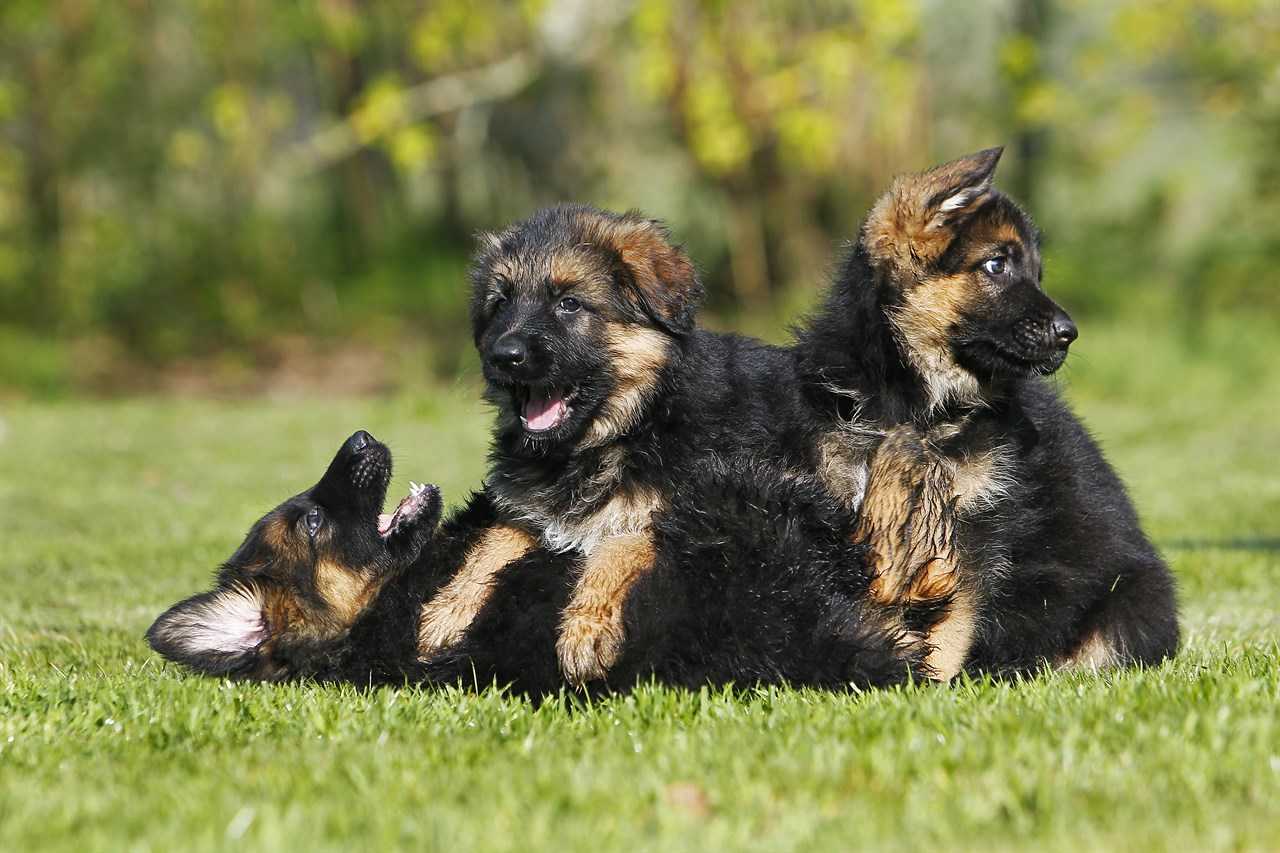Feeding Habits and Food Requirements of the German Shepherd Dog

Proper nutrition is essential for the health and well-being of German Shepherd Dogs. Their diet should be balanced, tailored to their age, activity level, and specific health needs. Here are some guidelines for feeding your German Shepherd.
High-Quality Dog Food
Choose a high-quality commercial dog food that meets the nutritional requirements of your German Shepherd. Look for products that list meat as the primary ingredient and avoid foods with excessive fillers and artificial additives.
Portion Control
German Shepherds can vary in size, so it's essential to adjust their portions according to their individual needs. Consult with your veterinarian to determine the appropriate daily serving size based on your dog's age, weight, and activity level.
Age-Appropriate Feeding
German Shepherd puppies, adult dogs, and seniors have different nutritional needs. Be sure to feed them an age-appropriate formula to support their growth and maintain their health.
Feeding Schedule
Establish a regular feeding schedule, ideally with two meals per day for adult German Shepherds. Puppies may require more frequent meals to meet their higher energy demands.
Avoid Overfeeding
German Shepherds are prone to obesity, so it's crucial to avoid overfeeding. Monitor your dog's weight and adjust their portions as needed to maintain a healthy body condition.
Fresh Water
Always provide your German Shepherd with access to fresh, clean water. Proper hydration is essential for their overall health.
Special Dietary Needs
Some German Shepherds may have specific dietary needs due to allergies, sensitivities, or medical conditions. Consult with your veterinarian if you suspect your dog has special dietary requirements.
Avoid Table Scraps
While it can be tempting to share human food with your German Shepherd, avoid giving them table scraps. Many human foods are not suitable for dogs and can lead to digestive problems or toxicity.
Treats in Moderation
Treats can be a useful tool for training and positive reinforcement. However, use them in moderation to prevent excessive calorie intake.
Regular Check-ups
Schedule regular veterinary check-ups to monitor your German Shepherd's overall health and ensure their dietary needs are being met.
Transitioning Foods
If you decide to change your German Shepherd's diet, do so gradually by mixing the old and new food over a period of several days to avoid digestive upset.
Remember that every German Shepherd is unique, and their dietary requirements may vary. It's crucial to monitor your dog's weight, energy level, and overall health to ensure they are receiving the appropriate nutrition. Consulting with a veterinarian or a canine nutritionist can help you create a tailored diet plan that meets your German Shepherd's specific needs and promotes their well-being.
German Shepherd Dog puppies for sale
- Find German Shepherd Dog puppies for sale in ACT
- Find German Shepherd Dog puppies for sale in NSW
- Find German Shepherd Dog puppies for sale in NT
- Find German Shepherd Dog puppies for sale in QLD
- Find German Shepherd Dog puppies for sale in SA
- Find German Shepherd Dog puppies for sale in TAS
- Find German Shepherd Dog puppies for sale in VIC
- Find German Shepherd Dog puppies for sale in WA